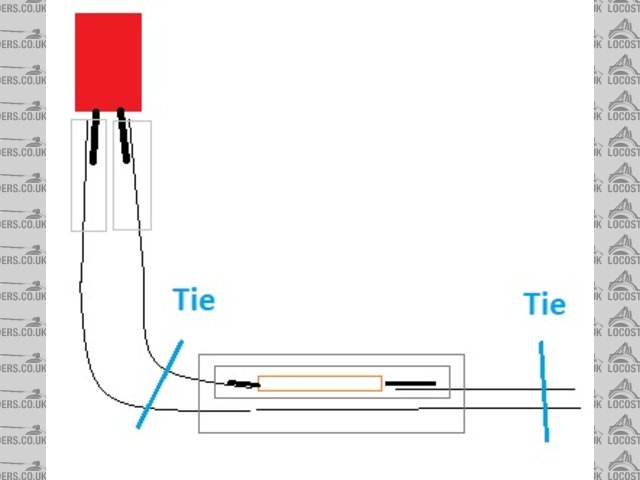Components like LEDs and resistors are not designed for mechanical stresses you find in harnesses, you need to reduce them as much as possible.


LED Mounting
[Edited on 29/4/20 by coyoteboy]

Hi all,
I'm looking for a 3 pin, 12v bi-coloured LED but am having no luck finding one.
It is for my water injection. I want the LED to come on when the boost pressure switch makes and activates the water injection. However, I have a
float sensor in the water tank. I want the LED to illuminate a different colour when the contents are low. I'm planning on using a relay and had
it all sorted.....I just can't find any suitable LEDs. Anyone know any....?
Just use a normal 3 pin LED and put a resistor in the supplies to suit depending on the forward voltage
https://uk.rs-online.com/web/c/displays-optoelectronics/leds-led-accessories/leds/?applied-dimensions=4294867237
https://www.ebay.co.uk/itm/254218538005
ETA you can get common anode or common cathode depending on whether you are switching +ve or -ve
[Edited on 28/4/20 by flak monkey]
We use 3 leg RGB LEDs at work, but 5V, not 12V.
flak monkey suggestsion seems an appropriate way solution to me though.
I should also add I'm working from home so no access to parts at work at the moment either. Otherwise I'd send you a few 5V ones (and some
resistors) to play with.
Or RS (190 different bi-colour LEDs available).
12V LEDs don't really exist, they're just normal LEDs pre-packaged with a resistor inline. You can make your own based on the electrical
characteristics of the colour/package you choose.
Thanks - itís been a lot of years since I played with electronics......
If Iím using the LED and resistor in-line, what is the best way to mount them inline behind the dash in a vibration/semi moisture resistant manner?
quote:
Originally posted by JC
Thanks - itís been a lot of years since I played with electronics......
If Iím using the LED and resistor in-line, what is the best way to mount them inline behind the dash in a vibration/semi moisture resistant manner?
quote:
Originally posted by peter030371
I would cover them with adhesive lined heatshrink tube. It should look something like this when its done https://i.stack.imgur.com/n3Uit.jpg
The above will work but I don't like the giant stiff structure on the diode leg- personally and professionally I would pull the diode away from
the resistor, not least because the likely wiring routing at the back of an LED will be immediately into a bend. Solder up the shortened LED legs with
heat shrink, map out where the bending will happen and where the harness will be tied together into a bigger bundle, then pop the resistor into the
section that will be tied down. Then put your heatshrinked resistor and other wire into a second heatshrink to splint the two together. where the
harness is tied down.
Components like LEDs and resistors are not designed for mechanical stresses you find in harnesses, you need to reduce them as much as possible.


LED Mounting
[Edited on 29/4/20 by coyoteboy]
Thatís great - thanks for the help. Iíll let you know how I get on!
quote:
Originally posted by coyoteboy
The above will work but I don't like the giant stiff structure on the diode leg- personally and professionally I would pull the diode away from the resistor, not least because the likely wiring routing at the back of an LED will be immediately into a bend. Solder up the shortened LED legs with heat shrink, map out where the bending will happen and where the harness will be tied together into a bigger bundle, then pop the resistor into the section that will be tied down. Then put your heatshrinked resistor and other wire into a second heatshrink to splint the two together. where the harness is tied down.
Components like LEDs and resistors are not designed for mechanical stresses you find in harnesses, you need to reduce them as much as possible.
LED Mounting
[Edited on 29/4/20 by coyoteboy]

 https://cleantechnica.com/files/2018/03/Caterpillar-Electric-Truck-1.jpg
https://cleantechnica.com/files/2018/03/Caterpillar-Electric-Truck-1.jpg 
 I design and build stuff that only gets one chance of working and has no chance of being repaired - I take no chances
I design and build stuff that only gets one chance of working and has no chance of being repaired - I take no chances 
I used to do it your way on personal stuff but I've had them fail so I don't risk it anymore. I'd at least want lashed lap joints

[Edited on 30/4/20 by coyoteboy]